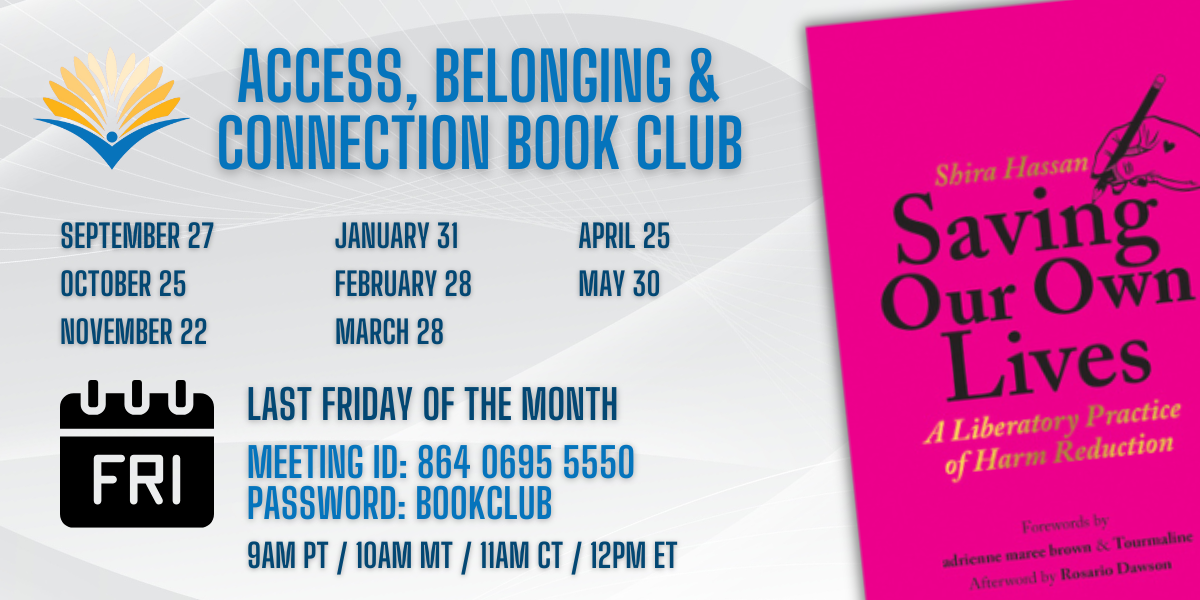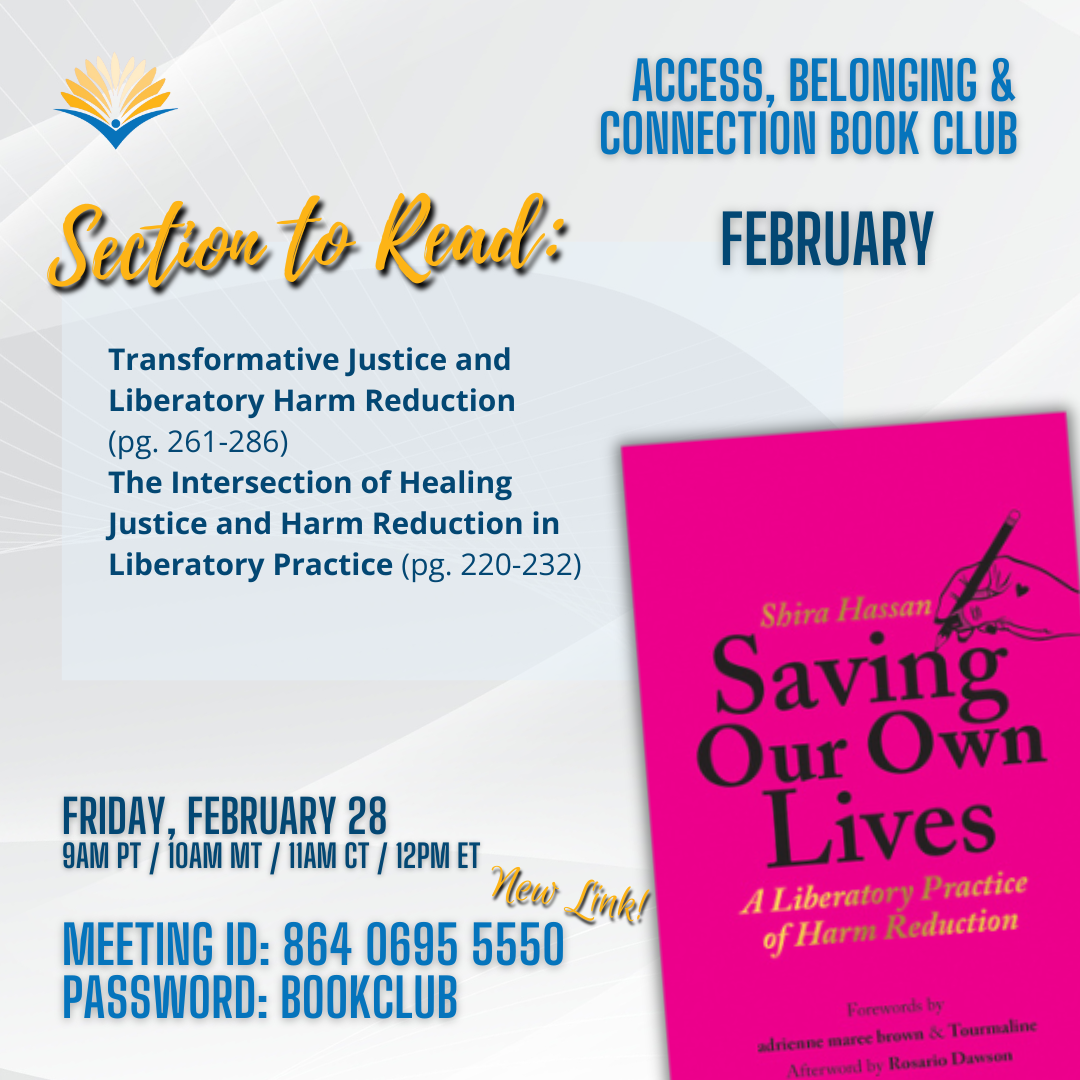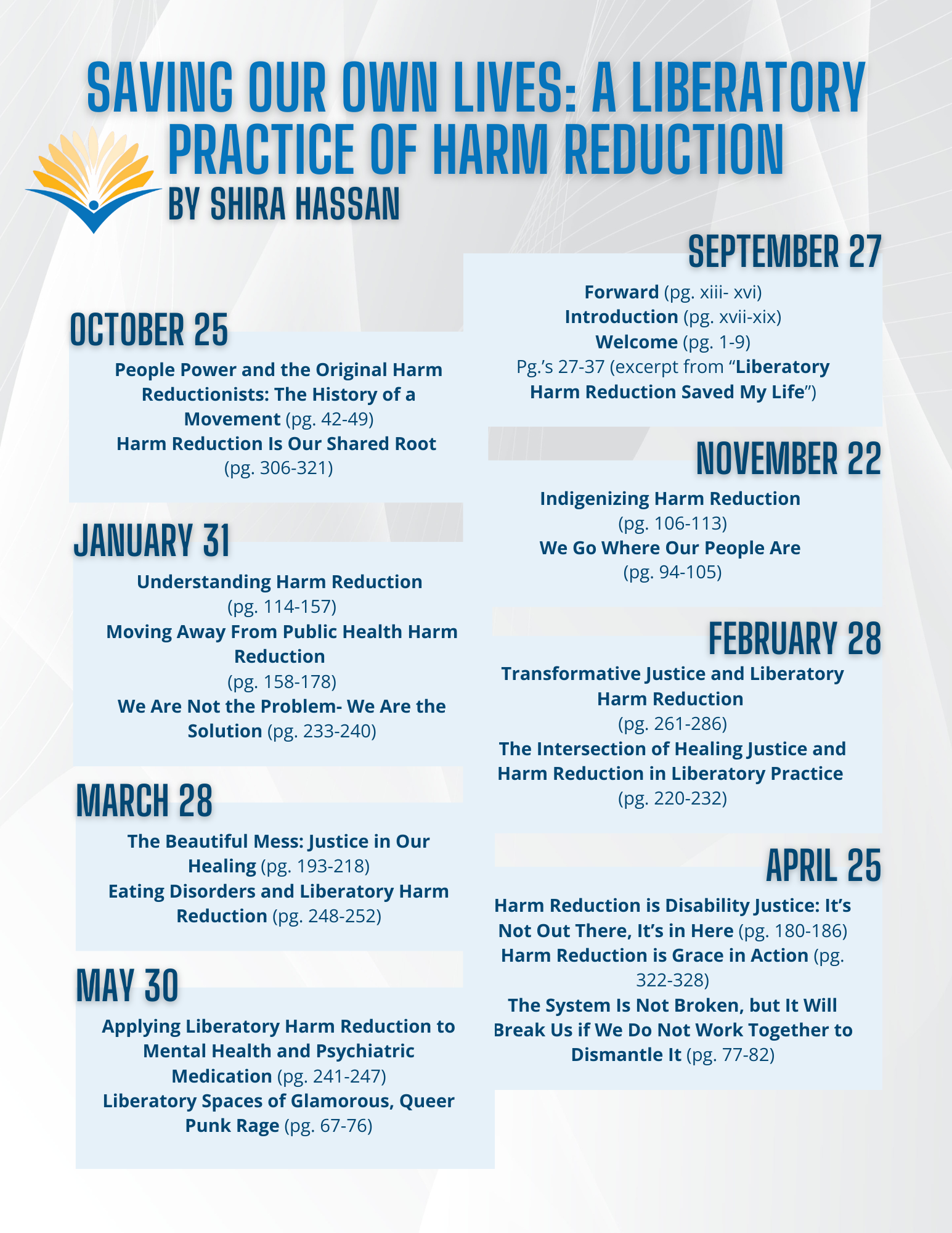Access, Belonging, & Connection
Previous ABC programming and resources can be found in the Resource Hub.
If you have any questions or concerns please contact us at abc@collegiaterecovery.org.
Monthly Book Club

More than your average book club… The Access, Belonging, & Connection Book Club seeks to explore difficult questions and thought-provoking topics as a community.
This year, we will be reading one book from September 2024 through May 2025. The Book Club will be reading select chapters each month from “Saving Our Own Lives: A Liberatory Practice of Harm Reduction” by Shira Hassan.
The book club will meet on the last Friday of every month at 12pm ET / 11am CT / 10am MT / 9am PT!
Discussion questions will be put in the chat during each book club meeting to guide your participation in discussion. The goal of book club is to generate a resource guide to pair with each section of the book. If you have not read the book you can still attend discussions and participate. Many of the questions pull from lived experience and personal perspectives. Your participation is valuable to us, regardless of your level of engagement with our programming.
February

Meeting ID: 864 0695 5550
Password: BOOKCLUB
January
November
September
October
The profession of collegiate recovery, while vital, does present with some limitation to the practice of harm reduction. We look forward to many nuanced and productive conversations about these concerns. It is our hope that book club this year will allow each of our participating collegiate recovery professionals to feel a new confidence in including harm reduction in their philosophies, strategies, and toolkits.

